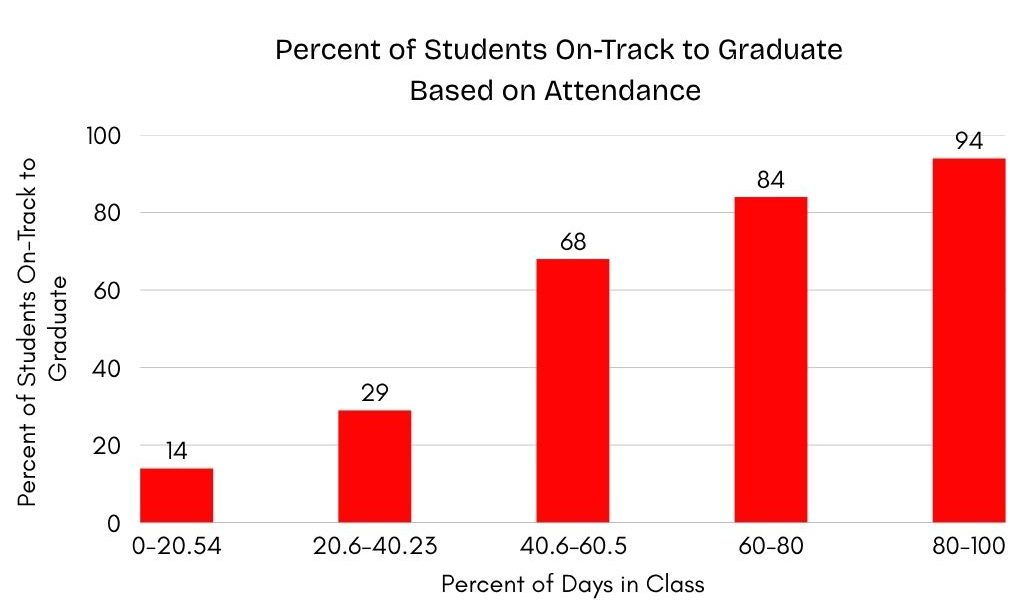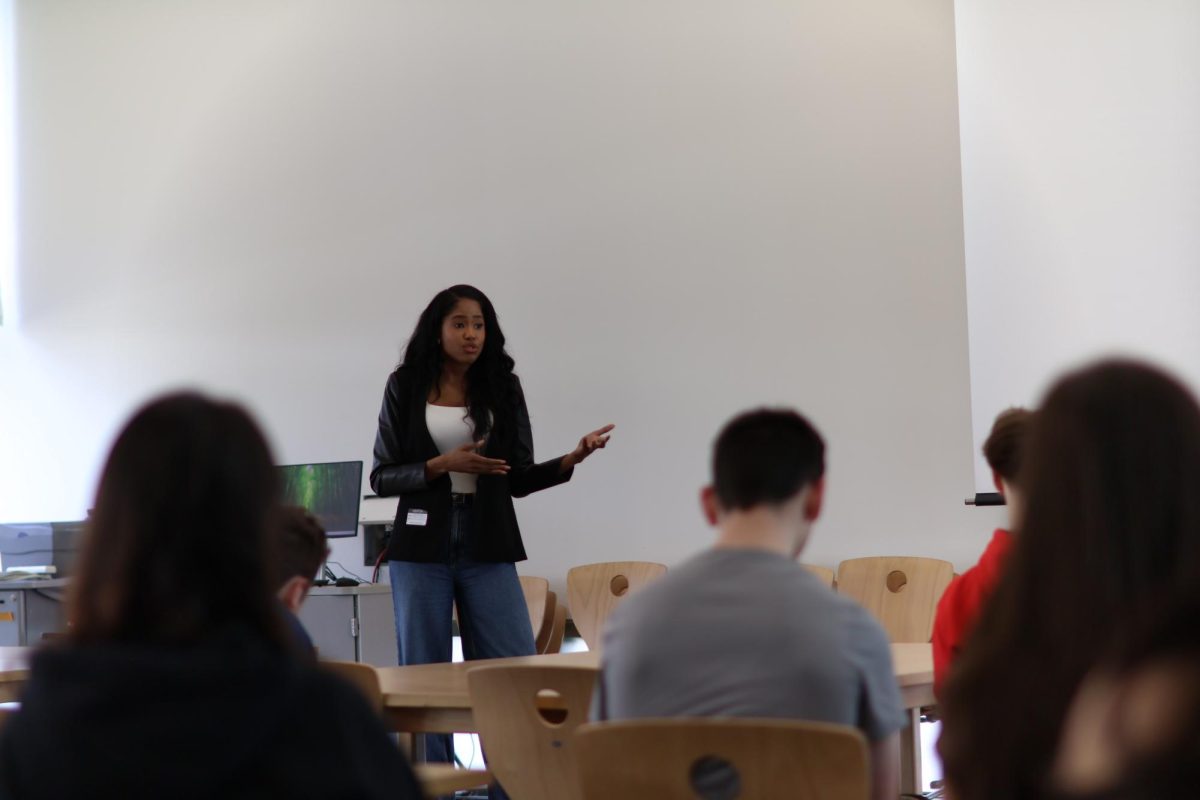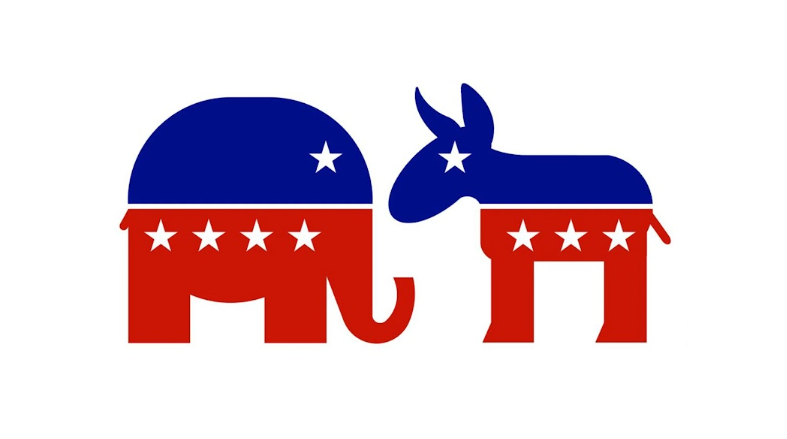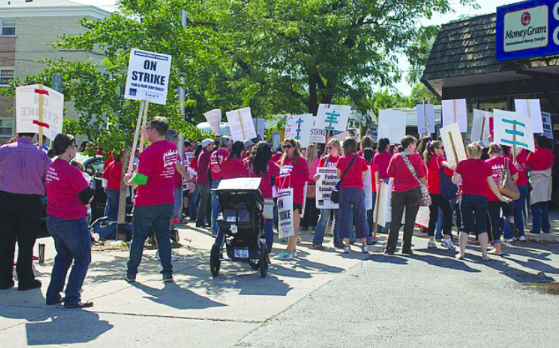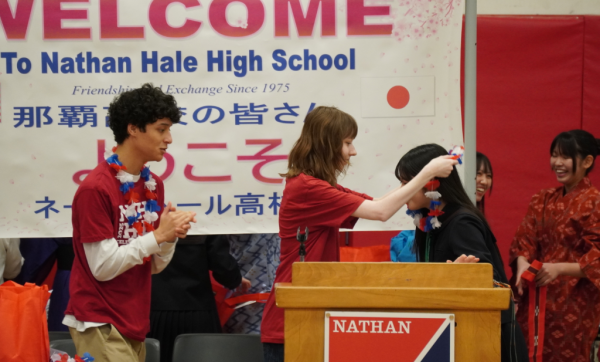
Scanning the bleachers at a recent school assembly, students were fully engaged – not a single pair of eyes fixed on a cellphone. When the next guest speaker shouted “What’s up Nathan Hale!” students erupted in boisterous cheers.
The all-school assembly was the annual welcome celebration for Hale’s Japanese sister school, Naha High School.
After recent district threats to end student travel to Japan, the Naha program commemorating five decades of international ties between sister schools held special significance. “This celebration is a testament to our deeply rooted commitment to ensuring all students become honorable, skillful, thinking global citizens who truly understand the role of culture in the community,” Principal Jolene Grimes said.
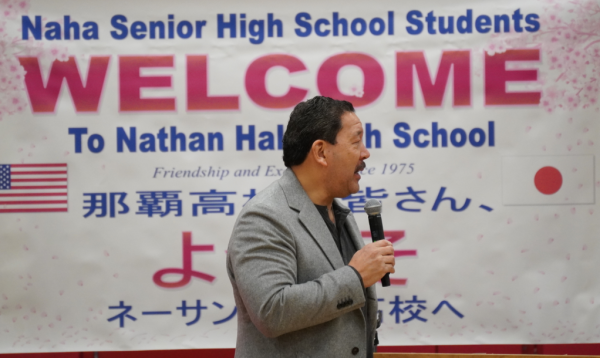
Mayor Bruce Harrell quoted Socrates: “We should see ourselves as citizens of the world,” highlighting the shared importance of cultural exchange between the Hale and NAHA communities.
“We need global community skills in the future to work with other countries,” said Naha student Yoshi Sakamoto. “The reason I came here was for furthering my outlook.”
The 50th anniversary carries extra significance because Okinawa was under American occupation after World War II until 1972, when the Okinawa Reversion Treaty returned it to Japan – 20 years after Japan regained its sovereignty.
The partnership between Naha Senior High School and Nathan Hale High School began in 1975. The first exchange brought Japanese students to Seattle in 1977, followed by American students visiting Japan in 1979.
Even in the earliest stages of this global relationship, strong bonds formed quickly. Hale alumna Liz Behlke first arrived in Okinawa after hosting Naha alumna Naoka in 1977. Their immediate connection grew into a 48-year friendship, “We’ve committed to a lifelong friendship,” Behlke said, “We call each other sisters.”
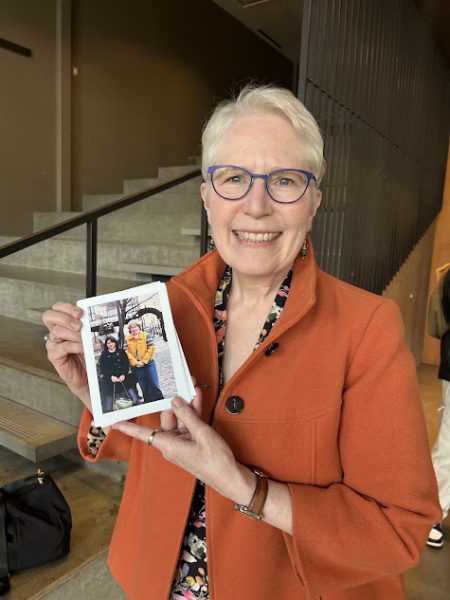
Friends by chance, sisters by choice, their connection has led to several return trips to Japan for Behlke and many visits from Naoka, “She’s visited me everywhere I’ve lived,” Behlke said, “Alaska, California, and here of course, all over.”
Their cultural exchange has influenced both families. Behlke’s daughter attended a Japanese immersion school and speaks fluent Japanese. Though Behlke never became fluent herself, she keeps the phrase “私は日本語を知りません” (“I don’t know Japanese”) as an ironic conversation starter, inspired by her long-ago trip.
Beyond their unique bond, their friendship provides perspective on global issues, “We are able to call and ask, ‘What’s going on?'” Behlke said, “We can connect without anger.”
As political polarization increases worldwide, Behlke values their shared worldview, “It’s important to connect internationally,” she said, “especially with the state right now, politically.”
When the Japan exchange faced discontinuation, students quickly mobilized, creating petitions and rallying community support to preserve the tradition.
Thanks to community passion, the sister-school relationship continues, allowing students to build international relationships and expand their horizons, “I believe that exchange programs like this at such a young age can have a profound impact,” Japanese Consul General Makoto Iyori said, “I encourage all of you to embrace every moment of it.”


